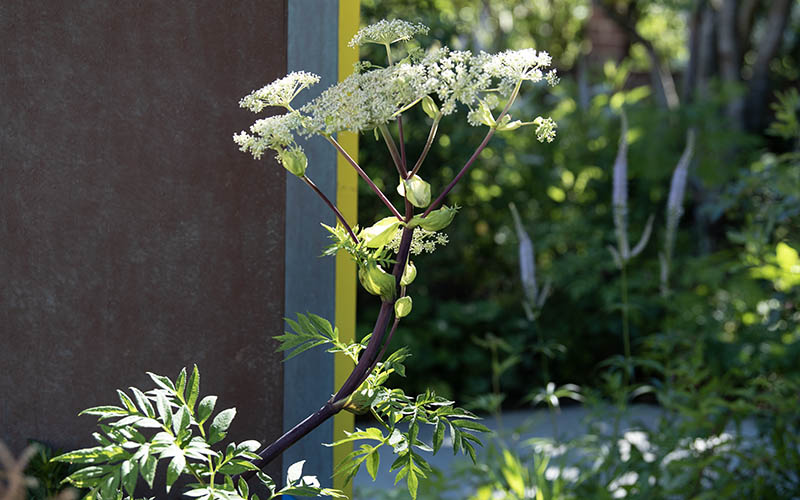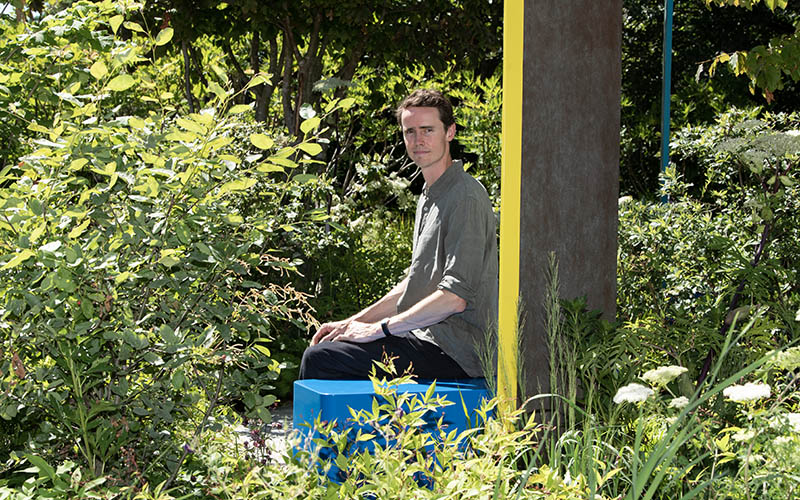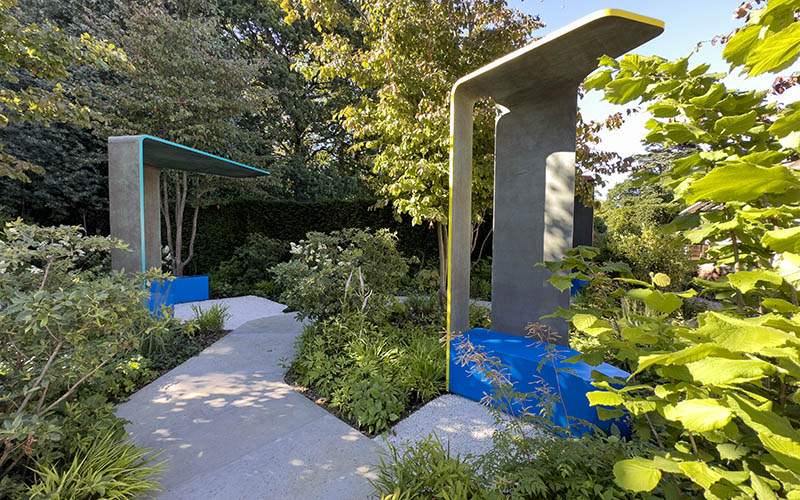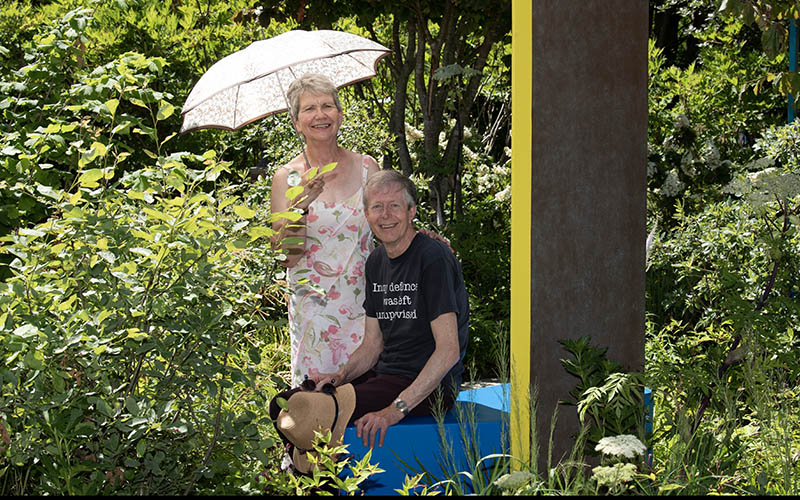The National Brain Appeal’s ‘Rare Space’ garden, designed by Charlie Hawkes and funded by Project Giving Back, won a gold medal, best Sanctuary Garden and a best construction award at the world’s most famous flower show.

An outdoor space that can be enjoyed by people living with rare forms of dementia, particularly visual and spacial forms of the disease, the garden will eventually be located at the world’s first Rare Dementia Support Centre in London. Whilst The National Brain Appeal raises the estimated £7m needed to build this Centre – expected to open in 2024/25 – the garden is temporarily located in Hampshire for Exbury’s visitors to enjoy, and to raise awareness of these life-changing neurological conditions.
The garden can be found opposite the Five Arrows Gallery in a previously paved area within Exbury Gardens. Interpretation boards outline the significance of key features within the space and explain how those with rare dementias and their families can seek support.
Marcus Agius, Chairman of Exbury Gardens and Chairman of the Rare Dementia Support Centre Development Committee, said: “I know our visitors will be intrigued and enchanted to see this garden. Apart from admiring its beauty, they will be interested to learn how it has been designed to comfort people with rare dementias. Perhaps they will also take away some ideas for their own gardens: how to use certain plants and design to create a sense of calm and well-being.”
Charlie Hawkes has designed the ‘Rare Space’ garden to offer a balance between exploration and calm navigation and give those with dementia a greater sense of safety within a place they can enjoy with a friend or family. Subtly coloured planting has been chosen to minimise sensory disruption. A level, wide path weaves simply through the garden, offering along its way brightly coloured, easily found seating areas and sheltered spaces for independent wayfinding.

Charlie said, “One in six people in the UK are affected by neurological conditions, so it’s important to support the exceptional work of The National Brain Appeal in funding world-leading research and supporting people with neurological conditions. I hope the garden will increase the feeling of well-being and connectedness of people living with rare dementias and other neurological conditions. The reaction from the public at Chelsea has been amazing and I hope visitors to Exbury will like it as well. I’m very grateful to Landscape Associates who helped to build the garden at Chelsea and will help with the relocation to Exbury too.”
Theresa Dauncey, chief executive of The National Brain Appeal, said: “We are so grateful to Marcus Agius and everyone at Exbury for hosting our beautiful Rare Space Garden and giving more people the opportunity to enjoy it and to learn more about rare forms of dementia.”

Rare Dementia Support (RDS), is a service funded by The National Brain Appeal, that provides information, support and advice to people and their families living with rare dementias. These dementias can strike young, affecting people in their 30s, 40s and 50s, and not necessarily have memory-led symptoms, but more often are seen through changes in vision, language or behaviour which create huge challenges to those living with these conditions, and to their families, carers and employers. Once opened, the Rare Dementia Support Centre will provide guidance, assistance and education, as well as being a space for research, artistic and cultural activities.
Painter and decorator, Peter Jones, age 67, from Fareham, was diagnosed with posterior cortical atrophy (PCA) last October. He and his wife Mandy had known something was wrong for about four years prior to this.
He said: “I remember playing with my grandson, who was two at the time. He had this puzzle with six large pieces with patterns on them and I just could not work it out.”
PCA is a rare form of dementia that can initially cause difficulties with seeing what and where things are.
Peter and his wife Mandy were enjoying the new garden at the launch event on 24 June 2023.

Sebastian Crutch, clinical lead for Rare Dementia Support, said: “People associate dementia with old age and memory issues. It will come as a surprise to some that there are rare forms of dementia that affect vision, language, movement and behaviour. Also, that people can be much younger when they start to experience symptoms, typically when they are in the 40s, 50s and 60s, when they are still working and have family commitments.”
“People’s lives are turned upside down when they get a diagnosis and that’s why Rare Dementia Support is so vital to help them and their families navigate the changes and come to terms with their new reality.”
Find out more about the garden and The National Brain Appeal